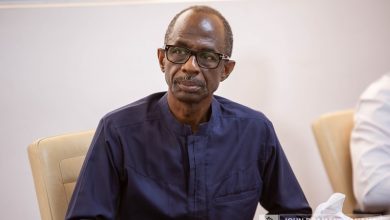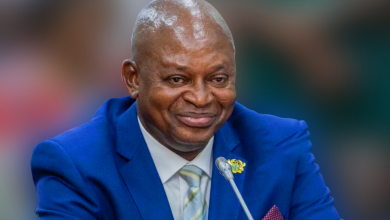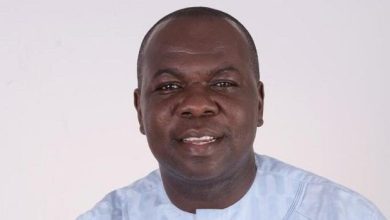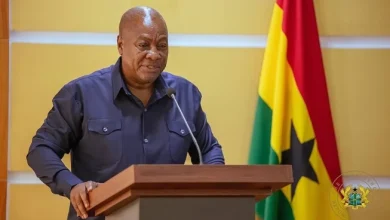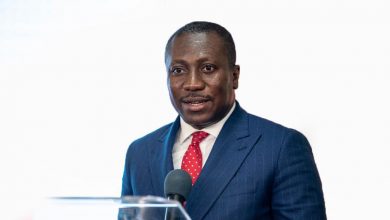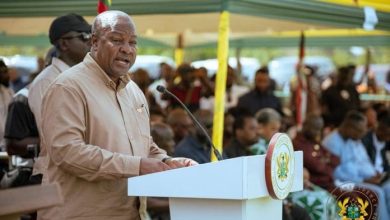Free SHS is a visionary policy not a desperate political promise – University lecturers to Mahama

A group of University Lecturers for Free SHS Ghana say the government’s flagship education policy, Free Senior High School (Free SHS), is not merely the ploy of a desperate politician but too great an idea for a visionless leader to be put in charge of it.
Addressing a press conference at the School of Business Conference Hall, University of Cape Coast (UCC), on Monday, 25 November 2024, the convenor of the group, Professor Isaac Boadi, who is also Dean of faculty and Accounting at the University of Professional Studies, Accra, UPSA, argued that Free SHS is a visionary and transformative policy designed to secure the future of the nation’s youth.
Critical
On behalf of the group, he pointed out that the initiative is not only about political expediency but is a critical tool in the pursuit of sustainable national development.
The group said the Free SHS is a bold, progressive policy that ensures equal access to education for every Ghanaian child, regardless of their socioeconomic background.
They explained that the policy represents a long-term investment in the country’s human capital, aimed at addressing the nation’s skills gap and fostering an empowered, well-educated population.
“Free SHS is not a whimsical promise made by a desperate politician; it is a forward-looking policy that empowers the future generation. It is about building a nation where every child has access to education, which is the foundation for national progress,” the group said during the press conference.
Commendation
The lecturers commended the government for its bold step in making secondary education accessible to all Ghanaian children, regardless of their financial background.
They highlighted the significant contributions of the Free SHS policy to inclusive and equitable education in the country.
They noted that the policy had played a crucial role in bridging the educational gap between privileged and underprivileged communities, allowing students from low-income families to access quality education.
This, they said, had contributed to reducing educational inequality and fostering a more equitable education system.
They also emphasised the positive impact of Free SHS on national development. By enhancing human capital through a well-educated population, the policy is driving innovation and economic growth.
The lecturers cited how the initiative has enabled many families to break the cycle of poverty, aligning with national development goals.
Key benefits
The lecturers said the Free SHS policy ensures that children from low-income households can access education without financial barriers, promoting social mobility and breaking the cycle of poverty.
“Free SHS prepares students for tertiary education and the labor market, contributing to national economic growth. The policy has also increased enrollment in universities, creating a larger pool of talent for research and innovation.
“By reducing school dropouts and child labor, Free SHS helps empower young people to contribute meaningfully to society, fostering greater social cohesion and stability,” they indicated.
The group added that the policy aligned with the United Nations’ Sustainable Development Goal 4, which seeks to ensure inclusive and equitable quality education and promote lifelong learning opportunities for all.
Recommendations
The university lecturers further urged the government to ensure consistent funding to maintain the program’s quality and accessibility.
They praised the government’s commitment to spending 10 billion cedis on the policy from its inception in 2017 to 2024, and called for continued increases in budgetary allocation.
They recognized the government’s efforts in providing physical infrastructure, including classrooms, dormitories, libraries, and laboratories, to accommodate the growing number of students. They called for continued improvements to ensure that no child was left behind.
The lecturers emphasised the need for continuous investment in teacher training and welfare. They urged the government to prioritize the recruitment and training of teachers, as well as the improvement of their remuneration, to ensure high-quality education.
They recommended the establishment of robust systems through the Ministry of Education and the Ghana Education Service to track the program’s impact, ensure accountability, and address challenges promptly.
The lecturers called on the government to ensure that the Free SHS program benefits every Ghanaian child, particularly marginalized groups such as girls, children with disabilities, and those in remote areas.
The group called on all stakeholders—parents, educators, policymakers, and civil society—to work together to sustain and improve the Free SHS education program. They emphasised that the policy was not just an initiative, but an investment in the nation’s future.
Source: asaaseradio

